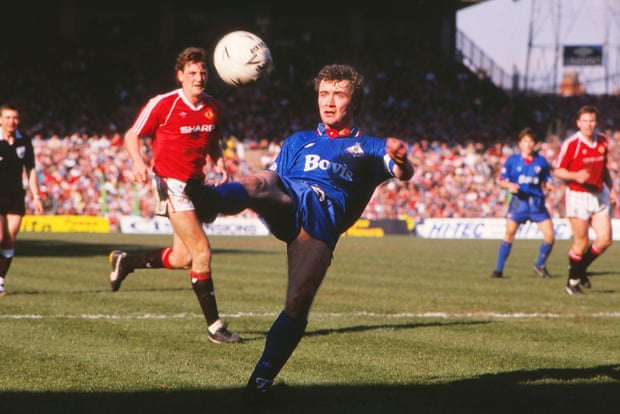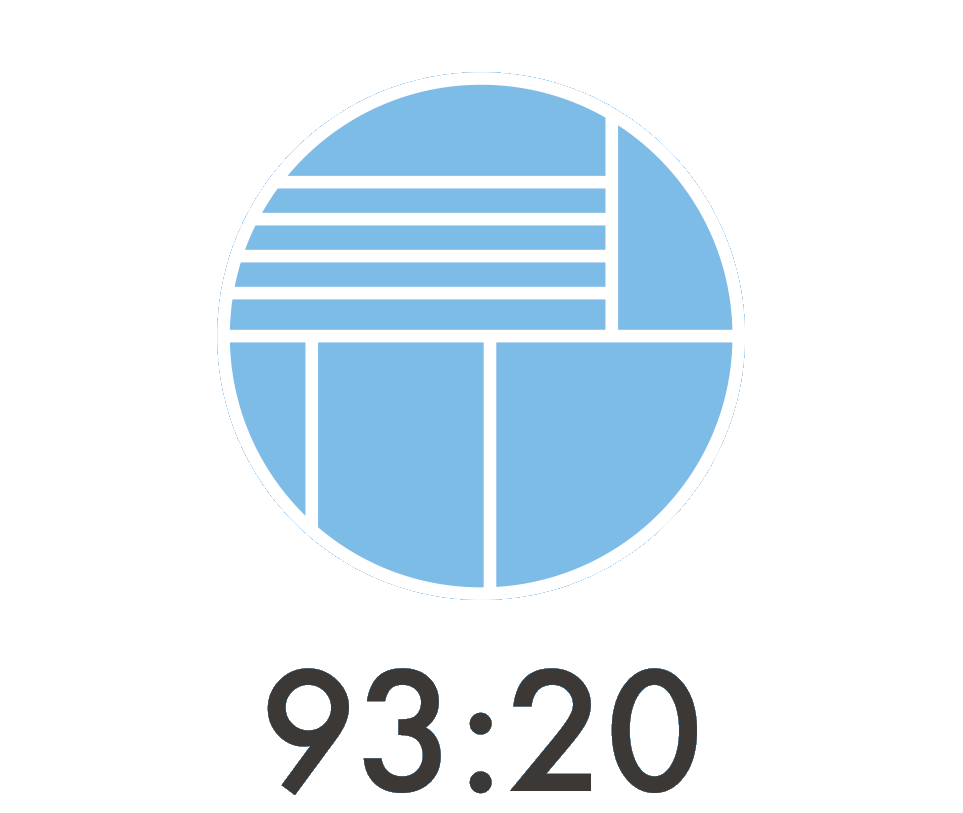Thirty Years Ago, English Football Changed Forever
By Mark Meadowcroft | 09 April 2020When did the good old days end for football and the slippery slope to the TV and money obsessed world we now inhabit gather unstoppable pace?
The easy answer is of course the foundation of the Premier League in 1992, the original sin of English football. But that is a deeply suspicious argument, made worse by the way some people divide history into pre and post the Sky Strikers.
Other slightly more subtle arguments take in the payment of directors and home clubs keeping all their gate receipts in the Thatcherite 1980s or the abolition of the maximum wage. Hipster theories are also available. They include the growth of television as an entertainment and particularly the coincidence of the Coronation and the Matthews FA Cup Final. If you want to google it, the case of the contract of the still very much alive George Eastham is extremely interesting. He was the Bosman of the 1960s – but a much better player.
However, something that happened 30 years ago this week was maybe, at least in English terms, as important as anything. And half of it happened at Maine Road. And the half played out in front of the Kippax proved the business concept we have become familiar with.
After the shock of Hillsborough had receded somewhat and Lord Justice Taylor had begun his work, there was universal agreement that some things had to change. Immediately. When the anniversary of the FA Cup Semi Finals came round, we weren’t going to do this the same way. Instead of two matches played simultaneously at 3pm on an April Saturday and shown on TV in highlight form that night, a revolution was afoot.
Both matches were delayed until Sunday. They were played one after the other (a lunchtime kick-off followed by a mid-afternoon one) and both were shown live on television. I cannot possibly explain to younger readers just how revolutionary this was in 1990.
The problem was that the matches looked, bluntly, like foregone conclusions. Liverpool and Manchester United had been kept apart and had facile matches to win before the inevitable showdown at Wembley. I remember sitting down on a day off from my student job pulling pints in a pub thinking this was a nice idea but it was going to be a damp squib.
What I then watched with growing disbelief was 240 minutes of back to back football that was largely of industrial quality but was played in beautiful spring sunshine and produced 13 goals and several sensational stories.
Liverpool had the early match, a straightforward tie against Crystal Palace, whom they had already beaten 9-0 that season at the classic London versus North West semi-final venue, Villa Park.
Palace had improved since their early season hammering at Anfield, and, following their promotion, looked surprisingly unlikely to be relegated. But that was largely down to Ian Wright, who was by far their best player, and he was injured. The Champions elect were huge favourites and when they took the lead through Ian Rush just before half time, the script was being written. Palace were committed and awkward but also limited and without Wright, truly dreadful to watch.
Then at half time, the match smoked a fat one. Almost immediately, Palace equalised with one of the great goalmouth pinball goals. Game well and truly on. Tension. Then a set piece, a goalmouth scramble and centre back Gary O’Reilly put Palace ahead. Liverpool restored order with 10 minutes left and almost immediately then won a penalty which John Barnes converted. At 3-2, the second half at least had been wildly entertaining but would also be a footnote in history. Until another free kick on 88 minutes, an even bigger scramble and another equaliser. You may have gathered by now that this match was not defined by Goal of the Season contenders. Bizarrely, extra time was needed which meant that stuff I’d planned to do between matches wasn’t happening.
And would you believe it, in extra time Liverpool ran out of puff and ideas. For the first time, we realised that this team was ageing. This time it was a corner and the winning goal was headed in by possibly the least heralded of all the Palace journeyman – a midfield water carrier called Alan Pardew who had played non-league football for years. Palace were in the final, they had beaten the mighty Liverpool by the laughably improbable score of 4-3 and the nation was agog. Wise voices pointed out that conceding three goals in one match from set-pieces – as Liverpool did – was unforgiveable – but the television spectacle was unarguable. That one match meant there was no way future semi finals would not be broadcast live. The quality of the play was pretty dreadful but the entertainment value was off the scale.
Act II
And then, more out of sorrow than anger, to a sunny Maine Road for Manchester United and second division Oldham Athletic, a match that couldn’t possibly match the acid trip of a match the nation had just witnessed.
As it happened, Joe Royle’s Oldham were direct but also good fun. Alex Ferguson was still far from secure as United manager and his team was, at best, a work in progress. They were also returning to the scene of a 5-1 hammering earlier in the season (your correspondent dimly remembers that match). Not only did Ferguson absolutely need to win to shore up his highly precarious job security, but opportunity now knocked. Deal with Oldham, and it was only Palace in the final. Instead of John Barnes, they would be facing John Pemberton. United were favourites, but also very nervous.
Almost immediately, comedy defending presented former City apprentice Earl Barrett with a chance he couldn’t miss and the Latics led. Bryan Robson equalised and United then went ahead with yet another scrambled goal, only for Oldham to equalise again almost straight away. United could not hold on to a lead. It was at this point that the nation realised that this was another riotously entertaining match, football as a Happy Mondays gig. 2-2 and more extra time was needed.
Danny Wallace put United back in front (the quality of the goals was finally beginning to rise) before Oldham equalised again. Roger Palmer was one that got away for City a decade previously and he famously came back to haunt us in a long career as a Latics cult hero, but the equaliser late in extra time, turning in the best move of the match in a semi final at the ground where it all started was the highpoint of a great career.
3-all after extra time on a beautiful afternoon, to go with 4-3 earlier in the day. There was substantially more quality in the second match and barely less excitement. The nation needed a lie down.
But from that point there was no going back. No-one could deny the TV watching public the chance to watch matches of this importance live any more. The movement of the schedule was seen to be justified and Hillsborough was the justification to make a change that should have happened years previously. One match was great – the dramatic Liverpool vs Arsenal title showdown had been shown live the previous season, but two marketed together as part of a wider narrative was far better, particularly when both matches are instant classics.
The second match is less well known but is maybe more historically significant in that it created a wider narrative than one game. It was and is not that unusual to strike lucky with one outstanding football match. But for a second one to back it up within an hour of the first match completing was unheard of, and that match at Maine Road inspired a cultural change.
Although we didn’t know it then, Super Sunday had been born – and was, at least for now, on free to air television. The world had changed.
A couple of months later, it was Italia 90 and Gazza’s tears. Football was still in bad shape, but it was moving in the right direction. People were realising that the low point had been passed and that it could be monetised like never before through television. International football and the England team in 1990 had a major influence but the value of football as a modern television staple had its concept proved not in Turin with Pavarotti singing and Lineker scoring, but by two leave your brain outside the stadium domestic classics at Villa Park and Maine Road on the same spring day in April 1990. One of those games was one of the most historically significant matches played at the old girl. I wish City had been playing, but we were knocked out in the Third Round at Millwall – one of the reasons that in 2020 I am tired of winning and find collecting trophies a thoroughgoing bore. But football was never the same again after an unforgettable afternoon consumed entirely from the comfort of my sofa.

